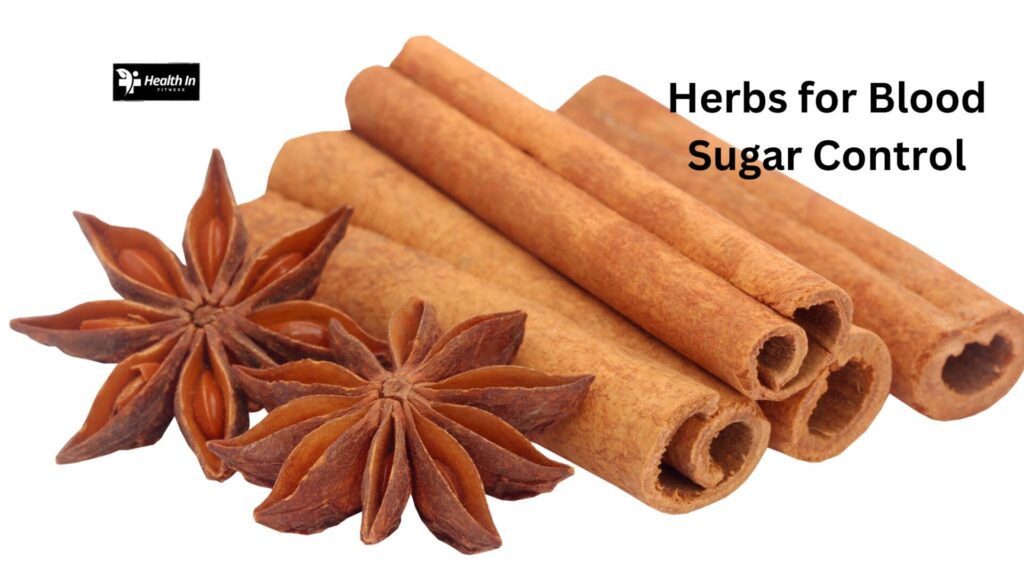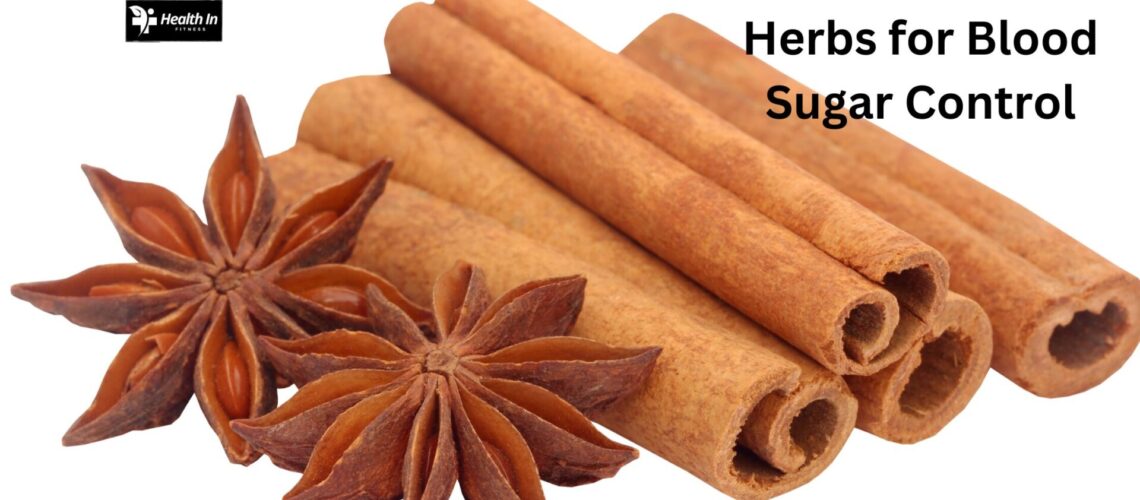
Maintaining balanced blood sugar levels is vital for individuals with diabetes, prediabetes, or those at risk of developing metabolic conditions. While proper diet and exercise are crucial, many turn to herbs for blood sugar control as a natural way to support their efforts. These herbs have been used for centuries in traditional medicine and are now backed by scientific studies, which show they can improve insulin sensitivity, reduce sugar spikes, and promote better glucose metabolism.
In this guide, we’ll delve into the most effective herbs that regulate blood sugar. You’ll learn about their benefits, how they work, and practical ways to use them. By the end, you’ll have a solid understanding of how these herbs can be part of a comprehensive strategy to manage blood sugar naturally.
Understanding Blood Sugar Regulation
To grasp how these herbs help, it’s important to understand blood sugar regulation. Blood sugar (glucose) serves as the body’s primary energy source, coming from carbohydrates in the food we eat. When carbohydrates break down into glucose, insulin—a hormone produced by the pancreas—transports glucose from the blood into cells for energy.
When the body doesn’t produce enough insulin or cannot use it effectively, blood sugar levels remain high. This condition, known as hyperglycemia, can lead to diabetes complications such as:
- Heart disease
- Nerve damage
- Kidney failure
- Vision problems
By keeping blood sugar levels stable, you can reduce these risks. Herbs offer a natural way to assist with glucose regulation by improving insulin function, reducing sugar absorption, and enhancing glucose metabolism.
Top Herbs for Blood Sugar Control
Below are some of the most effective herbs for managing blood sugar. We’ll explore how they work, their health benefits, and how to incorporate them into your routine.
1. Cinnamon
Cinnamon is one of the most popular herbs for blood sugar control, known for its ability to improve insulin sensitivity and reduce blood sugar spikes. Extracted from the bark of the Cinnamomum tree, this spice has been used for centuries in traditional medicine. Scientific research also confirms its benefits in reducing fasting blood glucose and improving insulin response.
How Cinnamon Regulates Blood Sugar
- Enhances insulin function: Cinnamon boosts insulin efficiency, helping cells absorb more glucose from the bloodstream.
- Reduces post-meal sugar spikes: It slows carbohydrate digestion, leading to a gradual increase in blood sugar rather than sudden spikes.
- Lowers fasting blood glucose: Studies show cinnamon reduces blood sugar levels when taken regularly.
How to Use Cinnamon
- Add 1/2 to 1 teaspoon of ground cinnamon to smoothies, teas, or oatmeal.
- Use cinnamon sticks to flavor teas or soups.
- Consider taking Ceylon cinnamon supplements, as it contains lower levels of coumarin, a compound found in cassia cinnamon that may be harmful in large doses.
Scientific Evidence
Research published in the Journal of Medicinal Food found that cinnamon supplementation significantly lowered fasting blood glucose in individuals with type 2 diabetes. Another study in Diabetes Care reported improvements in insulin sensitivity and reductions in HbA1c levels (a marker of long-term blood sugar control).
2. Fenugreek
Fenugreek is a versatile herb traditionally used in Mediterranean cuisine and medicine. Its seeds, in particular, are rich in soluble fiber, which helps slow the absorption of carbohydrates and regulate blood sugar levels.
How Fenugreek Controls Blood Sugar
- Boosts insulin sensitivity: Fenugreek seeds improve the body’s response to insulin, helping lower blood glucose.
- Slows carbohydrate digestion: The seeds’ high fiber content slows sugar absorption in the gut, preventing sudden blood sugar rises.
- Lowers fasting glucose: Regular consumption of fenugreek seeds has been shown to reduce fasting blood sugar.
How to Use Fenugreek
- Soak 1-2 tablespoons of fenugreek seeds in water overnight and eat them in the morning.
- Add ground fenugreek seeds to soups, curries, or smoothies.
- Fenugreek supplements are also available for convenience.
Scientific Support
A study in Phytotherapy Research found that fenugreek seeds significantly lowered fasting blood sugar and improved glucose tolerance. Another study published in Nutrition Journal showed improved insulin sensitivity and lower blood sugar levels after meals in participants who took fenugreek supplements.
3. Berberine
Berberine is a compound found in several plants, including goldenseal, barberry, and Oregon grape. It has been used in traditional Chinese and Ayurvedic medicine for centuries and has gained modern recognition for its ability to lower blood sugar and improve insulin function.
How Berberine Works
- Reduces liver glucose production: Berberine inhibits an enzyme called AMPK, reducing glucose production in the liver and lowering blood sugar.
- Enhances insulin sensitivity: It helps cells respond better to insulin, making it easier for the body to use glucose.
- Lowers fasting glucose: Berberine has been shown to reduce blood sugar levels when taken consistently.
How to Use Berberine
- Berberine is most commonly taken as a supplement due to its potency. A typical dose is 500 mg, taken 2-3 times daily before meals.
Scientific Backing
A study in Metabolism revealed that berberine significantly lowered fasting blood glucose, HbA1c, and insulin resistance in participants with type 2 diabetes. Another study found that berberine was as effective as metformin, a commonly prescribed diabetes medication, in lowering blood sugar.
4. Bitter Melon
Bitter melon (Momordica charantia) is a tropical fruit often used in Asian and African traditional medicine. It contains compounds that mimic insulin and support better glucose regulation.
How Bitter Melon Lowers Blood Sugar
- Acts like insulin: Bitter melon contains compounds that act similarly to insulin, helping cells absorb glucose more efficiently.
- Reduces glucose absorption: It slows down sugar absorption in the intestines, preventing post-meal blood sugar spikes.
- Lowers fasting glucose: Consuming bitter melon regularly helps decrease fasting blood sugar levels.
How to Use Bitter Melon
- Eat bitter melon raw, cooked, or juiced. It can be used in stir-fries, soups, or curries.
- Supplements are available in capsule or powder form for those who prefer a quicker option.
Research Support
A study in the Journal of Ethnopharmacology demonstrated that bitter melon significantly reduced fasting blood sugar levels in people with type 2 diabetes. Another study in Phytomedicine found that bitter melon improved insulin sensitivity and lowered HbA1c levels.
5. Gymnema Sylvestre
Gymnema Sylvestre, often called the “sugar destroyer,” has been used in Ayurvedic medicine for centuries. It is known for its ability to reduce sugar cravings and block sugar absorption in the intestines.
How Gymnema Sylvestre Affects Blood Sugar
- Reduces sugar absorption: Gymnema blocks sugar receptors in the intestines, reducing the amount of sugar entering the bloodstream.
- Lowers sugar cravings: It helps curb cravings for sweet foods, making it easier to avoid sugar and maintain stable blood sugar levels.
- Improves insulin sensitivity: Gymnema enhances the body’s ability to use insulin effectively.
How to Use Gymnema Sylvestre
- Take Gymnema Sylvestre supplements (400-600 mg before meals).
- Gymnema can also be consumed as a tea or powder.
Scientific Findings
Research published in the Journal of Clinical Biochemistry and Nutrition showed that Gymnema significantly reduced blood sugar levels in participants with type 2 diabetes. Another study reported improvements in insulin secretion and reductions in fasting blood glucose.
6. Holy Basil (Tulsi)
Holy basil, or tulsi, is a revered herb in Ayurvedic medicine, known for its numerous health benefits, including its ability to regulate blood sugar. It is rich in antioxidants and has been shown to improve insulin sensitivity and lower fasting blood sugar levels.
How Holy Basil Supports Blood Sugar Control
- Boosts insulin production: Holy basil enhances the pancreas’s ability to produce insulin and helps cells absorb glucose more effectively.
- Reduces fasting blood sugar: Studies show that regular consumption of holy basil can lower fasting glucose levels.
- Lowers oxidative stress: Its antioxidants help reduce inflammation, which can contribute to insulin resistance.
How to Use Holy Basil
- Consume holy basil as tea by steeping fresh or dried leaves in hot water.
- Holy basil supplements are also available in capsule form.
Scientific Research
A study in the Journal of Ethnopharmacology found that holy basil significantly lowered fasting blood sugar in participants with type 2 diabetes. Another study published in Phytotherapy Research showed that holy basil improved insulin function and reduced HbA1c levels.
7. Aloe Vera
Aloe vera is widely known for its soothing properties, but it also offers benefits for blood sugar control. Studies show that the gel inside aloe vera leaves can improve insulin sensitivity and regulate glucose metabolism.
How Aloe Vera Works for Blood Sugar
- Enhances insulin function: Aloe vera helps the body use insulin more efficiently, lowering blood sugar levels.
- Reduces fasting glucose: Aloe vera gel has been shown to lower fasting blood glucose in individuals with type 2 diabetes.
- Improves long-term glucose control: Aloe vera can reduce HbA1c levels, a measure of long-term blood sugar management.
How to Use Aloe Vera
- Consume aloe vera gel directly or add it to smoothies and juices.
- Aloe vera supplements are available for those who prefer capsules.
Scientific Evidence
A study in Phytomedicine found that aloe vera significantly reduced fasting blood glucose and HbA1c levels in people with type 2 diabetes. Another study in the Journal of Diabetes & Metabolic Disorders reported that aloe vera improved insulin sensitivity and reduced blood sugar.
Incorporating Herbs for Blood Sugar Control
While herbs offer a natural way to manage blood sugar, it’s essential to use them safely and consistently. Here are some tips for integrating these herbs into your routine:
- Consult your healthcare provider: Always consult with your doctor before starting any new herb, especially if you’re on diabetes medication. Herbs can interact with medications and cause blood sugar levels to drop too low.
- Monitor blood sugar regularly: Keep track of your blood sugar levels while using these herbs to see how your body responds and adjust your regimen as needed.
- Start with small doses: Begin with a low dose and gradually increase to avoid potential side effects or interactions with other medications.
- Maintain a healthy lifestyle: Herbs are most effective when combined with a balanced diet, regular exercise, and stress management techniques.
Conclusion: Herbs for Blood Sugar Control
Herbs can be a powerful complement to your diabetes management plan, offering natural ways to regulate insulin function and glucose metabolism. Herbs for blood sugar control such as cinnamon, fenugreek, berberine, bitter melon, Gymnema Sylvestre, holy basil, and aloe vera have shown significant potential for improving blood sugar levels and preventing diabetes-related complications.
By incorporating these herbs into your daily routine alongside a healthy diet and lifestyle, you can naturally improve your blood sugar control and reduce your risk of long-term complications.
For more information on herbs and supplements for managing diabetes, check out WebMD’s guide to natural supplements and Healthline’s review of herbs for diabetes.











